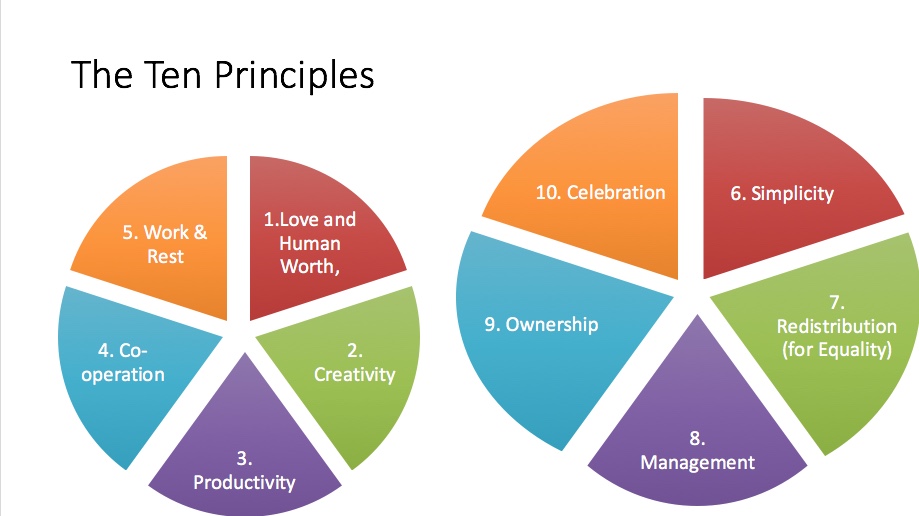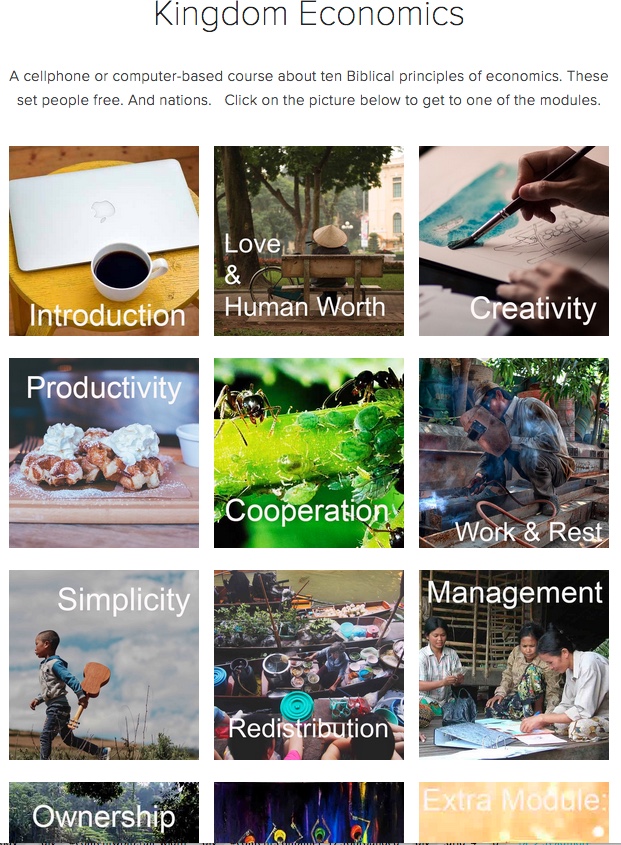Artifacts #5: The Field of Economic Discipleship
Three artifacts
 The development of the field of economic discipleship is represented by four artifacts - a book, a course, course content on a resource website and a web-site for cell-based delivery of the content to grassroots leaders.
The development of the field of economic discipleship is represented by four artifacts - a book, a course, course content on a resource website and a web-site for cell-based delivery of the content to grassroots leaders.
What was the purpose of applying theology to economics?
Since 1979 I have been writing on Kingdom Economics in the slums. it is impossible to disciple in the slums and not begin with economic discipleship. Each year this has been developed in various seminars and writings. I have integrated these around ten Biblical principles.
This field has been developed as one course in the MATUL degree at the partner and APU sites globally.
in 2016, there was a particular need in New Zealand, to confront TPPA (the Pacific Trade agreement) which would have destroyed our culture, so I took the themes from the slums and applied tham at a national level to New Zealand issues in a book Kiwinomics.
The ten principles have then been developed into a cell-phone based delivery system for grassroots slumleaders to be able to listen to, as reading is not at a high level - we are working with oral cultures.
What were the sources of this faith integration?
As with all our theological content it begins from the real issues, the discontinuities, the points of pain.
Overcoming unemployment, debt, money-lenders, poverty, lack of ownership, lack of access, oppression in the workplace are the daily struggles for slum-dwellers. A gospel that does not address such issues is not relevant.
Theological responses to poverty, oppression, land ownership, urbanization are developed fromthe scriptures and nmerous theologians, and ten principles are identified as foundational.
Responses in the marketplace can be found in readings on savings groups and microfinances (the Biblical cooperative principle), entrepreneurship and management (productivity), housing cooperatives (ownership) etc. Our task is to enable people to cross over from the informal to the formal sector through capital formation.
Methodology: Transformational Conversations
 The methodology of the Economic Discipleship Transformational Conversation is to begin with an issue - such as debt. Then to explore the scriptures and theology in a theological conversation. Next, to relate these to the city conversation about the nature of debt. The engagement of these two conversations results in a transformational conversation as the principle asre applied and solutions are sought to the debt issue. These then result in action implementing those principles.
The methodology of the Economic Discipleship Transformational Conversation is to begin with an issue - such as debt. Then to explore the scriptures and theology in a theological conversation. Next, to relate these to the city conversation about the nature of debt. The engagement of these two conversations results in a transformational conversation as the principle asre applied and solutions are sought to the debt issue. These then result in action implementing those principles.
What has been the impact?
168 churches in Uganda are now multiplying the economic dsipleship teaching in the slums using thei ccell phones. 45 Filipino pastors also
Over 120 Masters students globally are now training others in economic discipleship one way or another. These courses are seasons of adventure and curiosity as they find many different avenues for enabling their people to escape poverty.
Donald Trump aborted the TPPA talks, so the urgency disappeared for the book in New Zealand, but it is now being used in churches of one denomination to train in economic discipleship and is providing a core for creating an economic summit.

Cell-phone based delivery
A description of the process of development of cell-phone delivery with students and Companions to the Poor in Manila. Funded by a grant From Azusa Pacific University.
The following is a screen shot of the course links to podcasts for the Economic Discipleship training:

From Poverty via Ten Biblical Principles of Economic Discipleship to Liberty!

